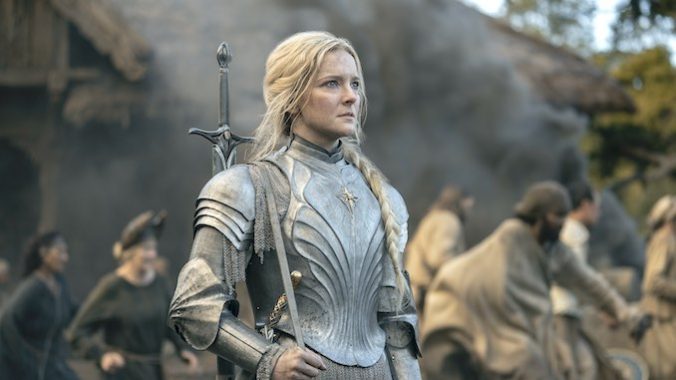Rings of Power Opened the Gates to Middle-earth for Lord of the Rings Newcomers
Photo Courtesy of Prime Video

I’m about to say something very controversial yet very brave: I have never seen Peter Jackson’s The Lord of the Rings trilogy. I haven’t seen The Hobbit films, and I have never read the books. Despite my previous lack of interest in Tolkien and his sprawling fantasy world, Prime Video’s The Lord of the Rings: The Rings of Power quickly became one of my favorite TV series of this year. The season finale, which finally revealed long-awaited answers and changed the power structure of Middle-earth forever, still worked wonders for me, even though I have no context for what’s to come.
Throughout the season, The Rings of Power smartly utilized its characters and its scope to tell a fairly contained story about impending doom, while not relying too heavily on the expectations set by the source material. Though complaints about the series reached from its slow pacing to its lack of consistent travel time, I can’t help but wonder if my own lack of knowledge of this world made those complaints feel insignificant, or even nonsensical.
Because while a majority of viewers have seen Lord of the Rings and are familiar with this world, it required some hand-holding to get me up to speed within the first few episodes, which the series graciously accommodated for. Every moment was new to me, so absorbing the series’ double-episode premiere felt like it was over much too quickly rather than moving at a snail’s pace. It slowly unfolded Tolkien’s world before me, and I found myself feeling completely in-tune with the series from the jump, never having to venture to Google to understand what was happening or where things were taking place.
Other than its accessibility, the most successful aspect of The Rings of Power is its ability to build characters that feel likable, flawed, and wholly realized, which grounded most of the finale’s shocking revelations. The extent of my outside knowledge of Sauron is that he’s super evil and eventually becomes a floating, fiery eye, so the reveal within the series worked more on Sauron’s connection to Galadriel than any expectations of who he becomes. Because, when stripping away the decades of lore and hours of film dedicated to this villain, the reveal is more about Galadriel than anything else. It’s about her misguided trust of a stranger, her hurt ego at being outsmarted by her greatest enemy, her former admiration for the man she had no idea killed her brother.
While Halbrand was very obviously the series’ Big Bad (something the heavy-handed outdoor market scene and subsequent alley brawl on Numenor during Episode 3 solidified for me), the extent to which he had planned all the dominoes to fall in his favor was surprisingly satisfying, especially knowing that Season 2 will feature Galadriel fighting harder than ever against whatever he may be doing next.
-

-

-

-

-

-

-

-

-

-

-

-

-

-

-

-

-

-

-

-

-

-

-

-

-

-

-

-

-

-

-

-

-

-

-

-

-

-

-

-








































